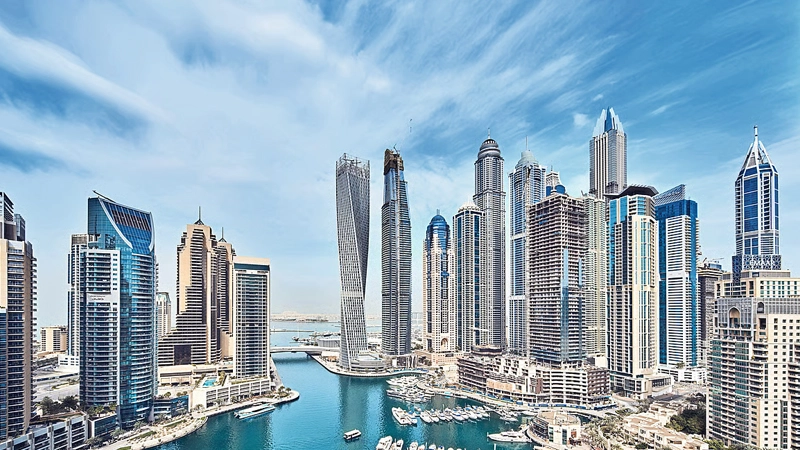
Dubai has long been a magnet for global investors seeking strong returns, stability, and world-class infrastructure. In recent years, its rental market has witnessed remarkable growth, supported by a rising population, a steady influx of expatriates, and the city’s ongoing development as a global business hub. For investors, understanding the dynamics of the Dubai rental market is key to making informed decisions that ensure both short-term income and long-term value appreciation.
This article explores current market trends, investor opportunities, rental yields, and the most promising neighborhoods in Dubai’s evolving rental landscape.
Dubai’s property sector has rebounded with exceptional force, driven by high demand for rentals and limited supply in prime areas. As more professionals relocate to the city, landlords are enjoying record rental yields and shorter vacancy periods.
Key factors boosting the rental market include:
The market’s resilience was especially evident in 2024, with average rents in several areas rising by over 20%, reflecting strong end-user and investor confidence.
The city’s tax-free rental income, transparent regulations, and world-class amenities make it an investor’s dream. Beyond the appeal of zero property tax, Dubai’s consistent capital appreciation and attractive rental returns set it apart from other global cities.
Top reasons why investors prefer Dubai include:
For investors seeking a balanced mix of stability and profitability, Dubai presents both.
Dubai’s rental market in 2025 is characterized by sustained demand, growing investor competition, and rising tenant expectations. Several trends are influencing the future of property investments:
1. Shift Toward Long-Term Tenancies
Many tenants now prefer long-term leases for stability, particularly families and working professionals. This provides landlords with consistent cash flow and reduced vacancy risk.
2. Growing Popularity of Mid-Market Apartments
While luxury properties still perform well, mid-market rentals in areas like Jumeirah Village Circle (JVC), Dubai Hills, and Business Bay attract higher occupancy rates. These units offer affordability with proximity to major business districts.
3. Smart Home Integration
Properties equipped with smart technologies such as automated lighting, energy management, and security systems are commanding premium rents.
4. Focus on Sustainable Communities
Investors are increasingly eyeing developments with green building standards, sustainable amenities, and efficient designs, aligning with Dubai’s push for eco-friendly living.
5. Short-Term Rentals Expansion
Holiday homes and serviced apartments continue to surge in popularity, particularly near Dubai Marina, Downtown, and Palm Jumeirah. The Dubai Tourism Department’s flexible short-stay regulations make this a lucrative segment.

Choosing the right location is vital for maximizing rental returns. Dubai’s diverse neighborhoods cater to different investor strategies—from high-end luxury to affordable housing.
1. Business Bay
One of Dubai’s fastest-growing mixed-use areas, Business Bay is favored by young professionals. With modern skyscrapers and proximity to Downtown Dubai, it offers average rental yields of around 7%.
2. Jumeirah Village Circle (JVC)
A top performer for affordable rentals, JVC combines accessibility, community living, and value-for-money apartments. Yields can range from 7–8%, with steady demand from working families.
3. Dubai Marina
Known for its luxurious waterfront living, Dubai Marina attracts high-income tenants and short-term renters alike. While property prices are higher, strong occupancy rates keep yields at a healthy 6%.
4. Dubai Hills Estate
An emerging family favorite, Dubai Hills offers a blend of villas and apartments with modern amenities and green spaces. Yields average around 6%, but long-term appreciation prospects are even stronger.
5. Al Furjan and Discovery Gardens
These areas cater to middle-income tenants and maintain strong demand due to affordability and access to public transport. Investors benefit from stable rental cash flow.
Dubai consistently outperforms many global real estate markets when it comes to rental returns. On average:
The combination of relatively low entry prices, high rental demand, and a stable currency (AED pegged to USD) makes Dubai’s rental investments a strong hedge against inflation and market volatility. Investors who adopt a data-driven approach—analyzing rental trends, property management costs, and tenant demographics—tend to achieve sustainable returns.
Dubai’s rental market caters to both long-term and short-term tenants, each offering distinct advantages to investors.
Short-Term Rentals
Long-Term Rentals
The choice depends on the investor’s goals—steady returns vs. higher potential yield with more involvement.
Dubai’s real estate framework continues to evolve in favor of investors. The government has taken several steps to enhance transparency, simplify ownership, and ensure legal clarity.
Key investor-friendly policies include:
These initiatives not only safeguard investor interests but also promote a mature and transparent rental ecosystem.
Entering the Dubai rental market can be highly rewarding when approached strategically. Here are essential tips for first-time investors:
Proper planning ensures your investment remains resilient and profitable in the long run.

Dubai’s rental market shows no signs of slowing down. Population growth, continuous development of lifestyle destinations, and economic diversification will continue fueling rental demand. The Expo legacy projects and upcoming infrastructure expansions, such as new metro lines and master communities, will further enhance property values.
Experts predict that by 2026, Dubai’s rental market will see more balanced growth as new supply enters the market, but prime areas will maintain upward momentum due to strong demand.
For investors, the strategy lies in identifying sustainable neighborhoods, balancing yield expectations with capital appreciation potential, and maintaining long-term vision.
Dubai’s rental market stands as one of the most attractive in the world for real estate investors. With high yields, strong regulations, and a lifestyle appeal unmatched in the region, it provides an ideal blend of security and profitability.
Whether you are a first-time buyer or an experienced investor expanding your portfolio, Dubai offers multiple pathways to long-term success. The key lies in understanding the market, aligning with local trends, and investing in communities poised for sustainable growth.
The Dubai rental market isn’t just thriving—it’s evolving into a benchmark for global real estate investment.
Do Follow Estate Magazine on Instagram.
